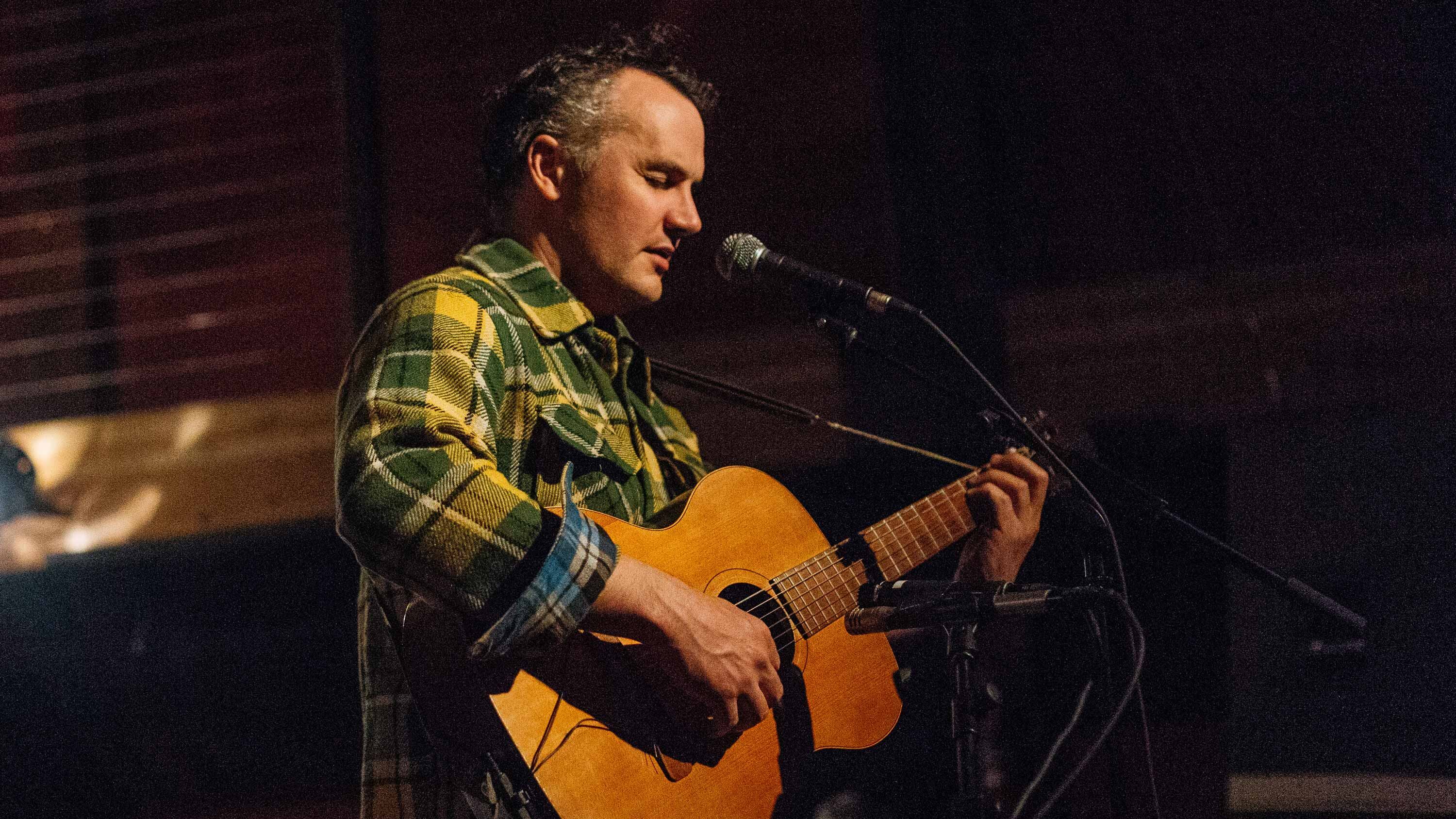The audience laughed cautiously, grateful both for the comic relief and the very real bracing for what was ahead. In effect, what he said was, There will only be sad songs tonight. But we already knew that.
Elverum—who, to a pocket of Pacific Northwesterners, is more folkloric deity than musician—rose to indie-god status with noisy, lo-fi recordings of songs rooted in naturalism that cast the everyday as mythically sacred, first under the moniker of the Microphones and now as Mt. Eerie. His newest LP, A Crow Looked at Me, could more pointedly be called Death is Real. That phrase is its dazed guiding star, its most persistent sentiment and a lyric repeated desperately throughout, as if even Elverum still needs to convince himself.
"Some of you knew my wife, Geneviève," he said, at once sounding shaken and relieved. "This is the first time I've played this set to people who aren't strangers. It feels different. It feels heavier."
At Mississippi Studios, wearing a green plaid flannel with red undershirt, he looked oddly comfortable onstage, by himself with just an acoustic guitar, singing with perfect articulation through sparse lyrics that are poetic in their frankness: “The last time it rained here you were alive still,” he sang on “Forest Fire.” “I watched you die in this room, then I gave your clothes away/Your transformed, dying face will recede with time, is what our counselor said.”
Song after song, the evening passed this way, evenly and quietly, in exact opposition to the way the passage of time is treated on the album—with grating specificity and disbelief, marking each day following Geneviève’s death as a day that could not possibly have happened. Taken side-by-side with the grief-centric albums that have practically become a genre in themselves over the past decade—Sufjan Stevens’ Carrie and Lowell, the Antlers’ Hospice, even David Bowie’s Blackstar—A Crow Looked at Me says the most about the experience of grief, deconstructed down to its most ugly, chore-like particles. In it, Elverum throws away Geneviève’s “bloody, end-of-life tissues” and receives a package in the mail labeled with her name, containing a backpack for when their 1-year-old daughter starts kindergarten.
All photos by Emily Joan Greene.
0 of 5






